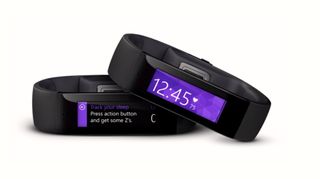Microsoft in 2015: Moving swiftly, and on the right track with the Microsoft Band
Is Microsoft on a new path?
Besides desktop Windows, Microsoft will also improve Windows Phone in 2015. While sales are still low – below 3% in the US – there is potential to grow in other markets, including fast growing markets in Europe and South America which could grow to be as big as the established markets today, if not bigger. Some commenters have given up on Windows Phone, claiming that apps are scarce – true – and that updates are slow – also true – but it is unlikely that Microsoft will give up on Windows Phone.
Unlike other companies, Microsoft can afford to spend resources on projects that have little obvious upside – and this extends to Windows Phone. Having missed the boat on smartphones and tablets originally, Microsoft is now scrambling to catch up with iOS and Android, with the outcome being interesting and, above all else, offering the opportunity to synergise all of their operating systems. Windows 8's design was first seen in Windows Phone 7 and has been iterated on both platforms ever since, offering relevance to the platform despite commercial failure.
Outside of just simple UI synergy, Microsoft is also bringing features from Windows Phone into Windows 10, the most prominent of which is Cortana. Various videos have leaked showing Cortana running on Windows 10, and the addition of the virtual assistant is a clear unique selling point for Windows as Apple is yet to add Siri to OS X.
Cortana was created as a response to Siri and Google Now, adding yet another reason to the list of points in favour of Windows Phone's continued existence: mobile is one of the most innovative places right now and having a foot in the door allows Microsoft to test features on Windows Phone before bringing them to Windows 10.

Surface and Band
Microsoft is no longer a software-only company, producing two new pieces of consumer hardware in 2014: the Surface and the Band. The Surface Pro line-up will likely see a refresh in 2015, creating the fourth version of the laptop/tablet hybrid and expanding Microsoft's position as a player in the world of hardware. Just as Google has done – and is doing – with the Nexus line, Microsoft uses the Surface Pro to guide hardware makers in the optimum setup for the most recent version of Windows.
The Microsoft Band, and associated fitness software, is an interesting new sphere for the company to be entering into and could, potentially, re-energise a company that is on the edge of irrelevancy. Many industry observers were shocked that Microsoft had built a new piece of hardware in secret and launched it, and the signs for the device are promising. While the reviews of the Band were average, it is encouraging that under Nadella's rule Microsoft is willing to experiment and execute speedily, catching a market as it emerges, not after it has emerged.
Apple is going to release its Watch in the first quarter of 2015, Samsung is on its sixth generation watch and the Moto 360 has an acclaimed design. All of this points to one conclusion – the wearables space is going to experience its renaissance in 2015 and Microsoft already has a wearable on the market. Microsoft seems determined to move ahead and avoid a repeat of the smartphone and tablet markets.
Are you a pro? Subscribe to our newsletter
Sign up to the TechRadar Pro newsletter to get all the top news, opinion, features and guidance your business needs to succeed!
The Microsoft of Ballmer's era has gone, replaced by a company willing to expand quickly into new markets and take into consideration the views of customers. While Redmond may not have the current brand strength of Apple or Google with consumers, Microsoft is on the right track and 2015 could well be Redmond's year.
Max Slater-Robins has been writing about technology for nearly a decade at various outlets, covering the rise of the technology giants, trends in enterprise and SaaS companies, and much more besides. Originally from Suffolk, he currently lives in London and likes a good night out and walks in the countryside.
